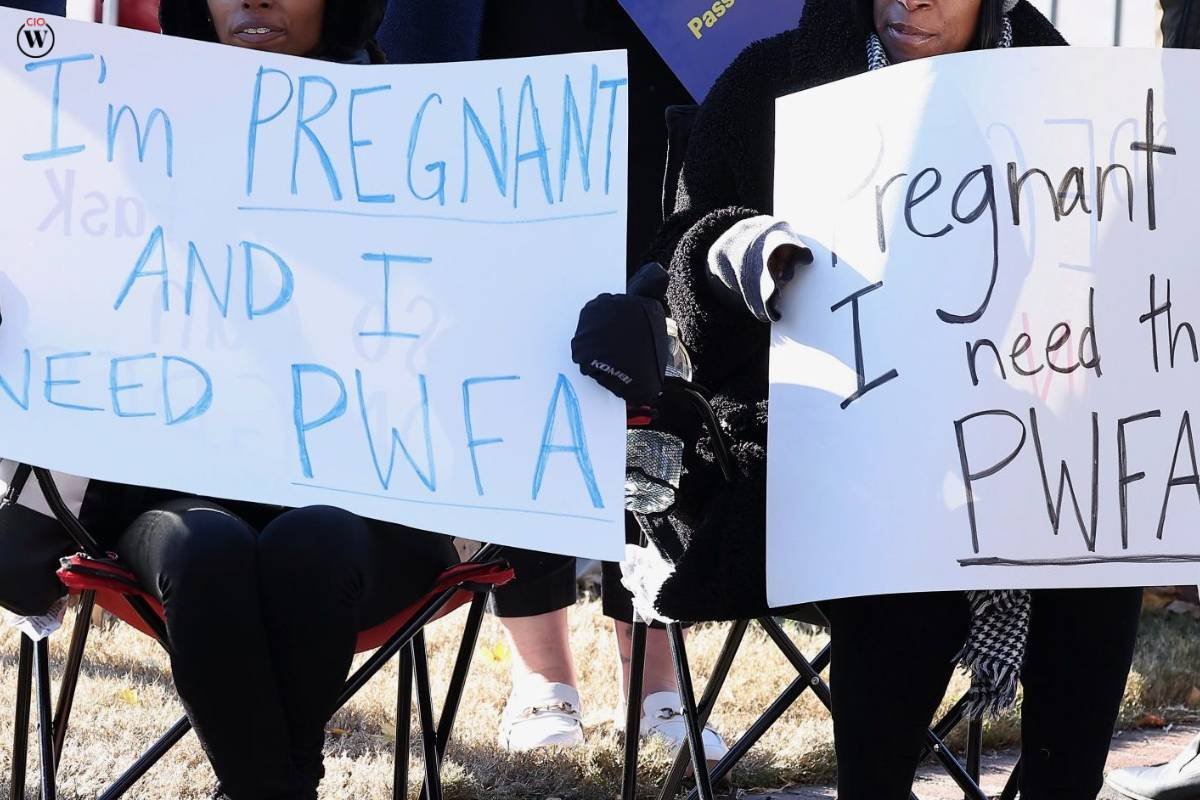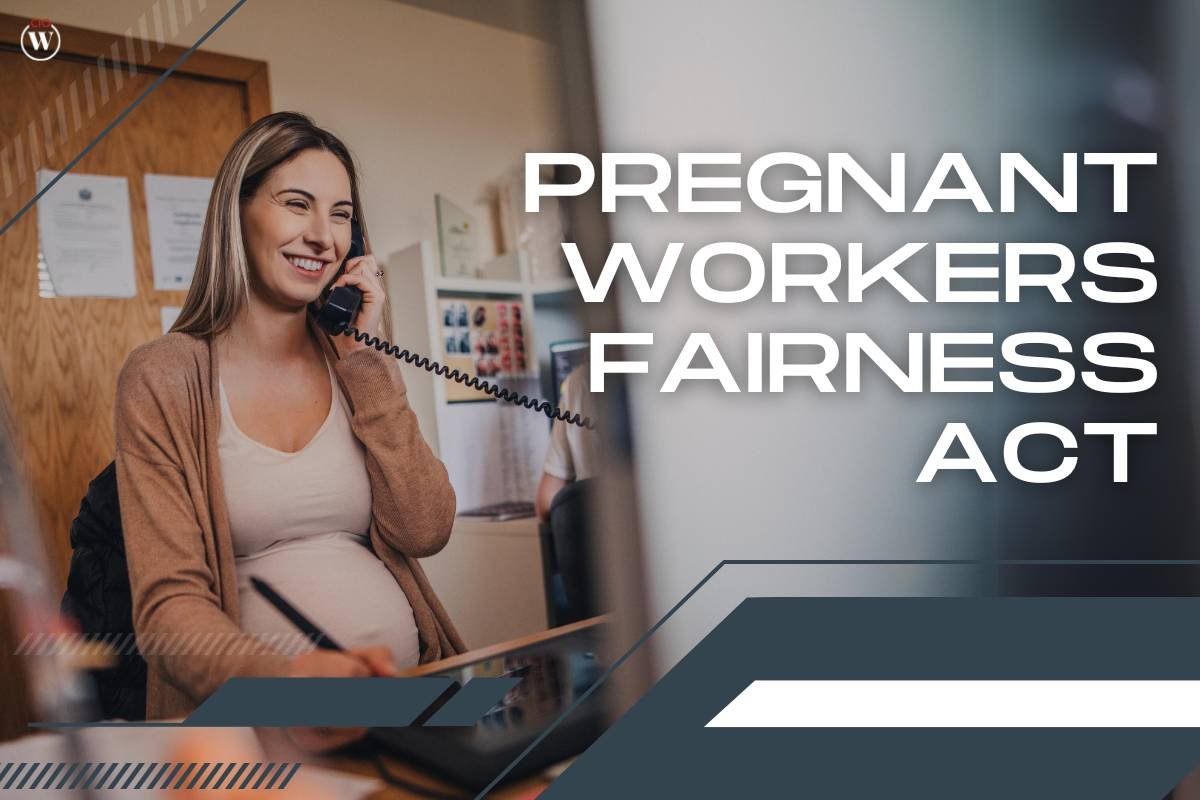In a world that is increasingly focused on gender equality and women’s rights, the Pregnant Workers Fairness Act has emerged as a critical piece of legislation in the United States. This landmark law is not just about protecting the rights of pregnant workers; it’s also about recognizing and supporting women in the workplace. By ensuring that pregnant workers are provided with the necessary accommodations and protections, this act plays a pivotal role in propelling women’s roles in the workplace.
Understanding the Pregnant Workers Fairness Act
The Pregnant Workers Fairness Act, often abbreviated as PWFA, was signed into law in the United States in 2020. It builds on existing anti-discrimination legislation like the Pregnancy Discrimination Act (PDA) and the Americans with Disabilities Act (ADA) to provide additional protections to pregnant workers.
One of the key features of the PWFA is the requirement for employers to provide reasonable accommodations to pregnant employees. These accommodations can include modified work duties, additional breaks, or changes in the work environment, among other things. The Act also prohibits employers from discriminating against pregnant workers or those who have pregnancy-related conditions.
The Need for the PWFA
The PWFA came into being because of a growing recognition of the challenges faced by pregnant workers in the United States. Despite existing laws, many women were still being subjected to discriminatory treatment, such as being forced to take unpaid leave or losing their jobs altogether due to pregnancy. The PWFA aims to rectify these issues and ensure that pregnant workers are treated fairly and with the respect they deserve.

It’s important to understand that women have made significant strides in the workforce over the years. More women are now participating in the labor market than ever before, and they are reaching positions of power and leadership. However, the persistence of pregnancy-related discrimination hinders the progress of working women.
By addressing this issue, the PWFA promotes gender equality by allowing women to continue their careers without unnecessary interruptions or unfair treatment.
Key Provisions of the PWFA
The Pregnant Workers Fairness Act has several key provisions designed to protect the rights of pregnant workers:
- Reasonable Accommodations: Employers are required to make reasonable accommodations for pregnant workers. These accommodations can vary depending on the individual’s needs and the nature of their job. They may include modified work hours, adjustments to job duties, or changes in the work environment to ensure the health and safety of the pregnant worker.
- Non-Discrimination: The PWFA explicitly prohibits employers from discriminating against pregnant workers or those with pregnancy-related conditions. This includes hiring, promotions, and workplace policies that negatively affect pregnant employees.
- Notification: Employers must inform their employees about their rights under the PWFA. This ensures that pregnant workers are aware of their protections and can assert their rights when necessary.
- Legal Remedies: The Act provides legal remedies for pregnant workers who experience discrimination or are denied reasonable accommodations. Workers who have been wronged can file complaints with the Equal Employment Opportunity Commission (EEOC) or take legal action against their employers.
Empowering Women in the Workplace
The Pregnant Workers Fairness Act serves as a powerful tool in empowering women in the workplace in several ways:
1. Economic Stability: By preventing discrimination and ensuring that pregnant workers can continue working, the PWFA contributes to the economic stability of women and their families. It allows women to maintain their income and career trajectory, which is essential for long-term financial security.
2. Career Progression: Women who have the opportunity to continue working during pregnancy are more likely to advance in their careers. The Act facilitates this by eliminating the obstacles that might otherwise derail a woman’s professional journey.

3. Encouraging Family Planning: The PWFA supports family planning by allowing women to work while pregnant without fear of losing their jobs or income. This, in turn, encourages women to make choices about when to start or expand their families based on their personal and professional goals.
4. Promoting Gender Equality: The PWFA is part of a broader effort to promote gender equality in the workplace. When women are protected and supported during pregnancy, it sends a message that the workplace is inclusive and respectful of women’s roles.
5. Reducing the Gender Pay Gap: Pregnancy-related discrimination has contributed to the gender pay gap, as women often face setbacks in their careers due to pregnancy. By addressing this issue, the PWFA helps reduce the disparities in pay between men and women.
Success Stories
The impact of the Pregnant Workers Fairness Act can be seen in several success stories. For example, consider the case of Jane, a marketing manager at a medium-sized tech company. When Jane became pregnant, her employer initially expressed concerns about her ability to perform her job. However, Jane was well aware of her rights under the PWFA. She engaged in an open and honest conversation with her employer and requested reasonable accommodations, including a modified work schedule and more flexibility.
Thanks to the provisions of the PWFA, Jane’s employer complied with her request, and she continued to excel in her role throughout her pregnancy. Her employer’s willingness to provide accommodations not only ensured her health and well-being but also solidified her commitment to the company. Jane’s success story highlights how the PWFA empowers women to advocate for themselves and continue contributing to their workplaces.
Critics and Challenges
While the PWFA is undoubtedly a positive step toward gender equality in the workplace, it has not been without its critics and challenges. Some argue that the Act places an undue burden on employers, particularly small businesses and that it may lead to increased litigation. It’s important to strike a balance between protecting the rights of pregnant workers and ensuring that employers can reasonably accommodate their needs.

Furthermore, ensuring that all employers are aware of and comply with the PWFA can be a challenge. Many small businesses may not have the resources or legal expertise to fully understand and implement the requirements of the Act.
However, these challenges should not detract from the importance and necessity of the PWFA. It is essential to find ways to support both pregnant workers and employers in implementing the Act effectively.
Conclusion
The Pregnant Workers Fairness Act is a significant milestone in the fight for gender equality in the workplace. It recognizes the importance of supporting and protecting pregnant workers, thereby enabling women to continue their careers without unnecessary interruptions or discrimination. By ensuring that pregnant workers are provided with reasonable accommodations and safeguarding their rights, the PWFA not only empowers women but also propels their roles in the workplace. It is a crucial piece of legislation that promotes fairness, inclusivity, and economic stability for working women, contributing to a more equitable future for all.
Related Topic: Does Pregnancy Changes Everything For A Woman?









